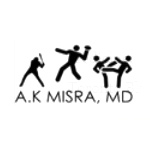RALEIGH, N.C. – Outside activities, whether they're work related or part of summer fun, also can expose people to heat related illnesses, as temperatures climb.
Heat exhaustion and heat stroke are both serious medical conditions, but the ways they are treated are very different.
Dr. A.K. Misra, a sports medicine specialist, says if you're hot but you've stopped sweating, it's a likely sign of heat stroke.
"They don't sweat anymore,” he explains. “In heat exhaustion, you're sweating quite profusely. And also, even the quality of the skin can be different – you can have cold, clammy, pale skin in the context of heat exhaustion. In heat stroke, it can be red, and it can be hot."
If you think you or someone around you has heat exhaustion, Misra says move that person to a cool area, loosen or even remove clothing, and provide water – avoiding anything with alcohol, caffeine or high amounts of sugar. If you suspect heat stroke, he says seek immediate medical attention.
Although offering water to people with heat stroke may seem logical, Misra says it isn't safe in their condition.
"In heat stroke, it's really failing mental status that makes it stand apart,” he states. “They may be totally in a delirium state of affairs. Don't try to give these people fluids, because they can't protect their airways very well. You do want to give fluids in the heat exhaustion context."
People with heat stroke have body temperatures that reach at least 104 degrees, and Misra says the longer it stays at that elevated level, the more health damage can be done.






